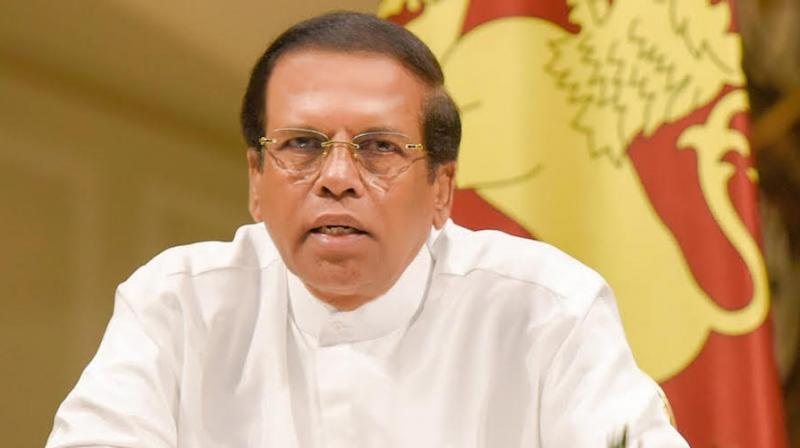Sri Lankan President denies he was informed about Easter Sunday attacks

Colombo: Sri Lanka President Maithripala Sirisena on Thursday evening denied reports that he had prior knowledge of the Easter Sunday bombings, which targeted several high-end hotels and three churches, killing over 250 people across the country on April 21.
Colombo Page cited a statement, issued by the President's Media Division, as saying that the President, on April 8, had convened a monthly meeting with the Inspector General of Police and other senior police officers.
However, in the over two-hour long meeting, none of the police officers informed the President that advance reports on a possible terrorist attack had been received.
Also Read: SL PM Wickremesinghe vows to stop ISIS terrorism rising again
Neither the Defence Secretary, nor the Inspector General of Police nor any other officer had informed the President about a warning letter received from a friendly foreign country about the impending April 21 terrorist attack, the statement said.
The statement came after Defence Secretary, General Shantha Kottegoda, and Chief of State Intelligence Service, Sisira Mendis, gave evidence before the Parliamentary Select Committee (PSC) on Thursday.
The PSC, which was appointed to inquire into the Easter Sunday terrorist attacks, met for the first time yesterday at the parliament complex.
In the meeting, Defence Secretary while explaining the process of the National Security Council and activities of the National Intelligence Units said that the entire State intelligence service was not weakened by the arrests of few intelligence officers as alleged.
Kottegoda also explained that the first intelligence information pertaining to the existence of extremist groups in Sri Lanka was revealed in 2014 and if the action had been taken, the April 21 attack could have been averted.
He said although intelligence information was revealed early on the extremist organisations and relevant parties had been informed, they were not banned. If they had been banned it could have prevented the situation from rising to this magnitude.
When asked whether he is satisfied with the current security situation in the country and whether the state is ready to ensure no such events will happen in the future, the Defence Secretary said that as an immediate solution, the threat has been neutralised 99 per cent but it is not a problem that can be eliminated within a month or two.
"This is just a short-term solution. We need to have long-term solutions. That includes border security and other measures. Not only the Defence Ministry but other ministries, will also have to jointly work together for a long-term solution," Kottegoda was quoted as saying.
He further stressed that current Intelligence Units are not weakened, adding that Intelligence Units can be further developed and strengthened.
In addition, the President today also stated that there were media reports of a statement made by the Head of the National Intelligence Service (NIS), while giving evidence at the Parliamentary Select Committee appointed to look into the April 21 terrorist attacks.
The media reports stated that the National Security Council did not meet after February 2019.
With media reports unofficially on the proceedings of the NSC, it was decided to establish an NSC with a new format and this has been in operation for more than one year. The new NSC has been meeting every two weeks and, on some occasions, the President has convened the meetings of the NSC every week, the statement added.
The deadly serial attacks were carried out by the local Jihadi group National Thowheed Jammath (NTJ) which is linked to the ISIS (Islamic State).

